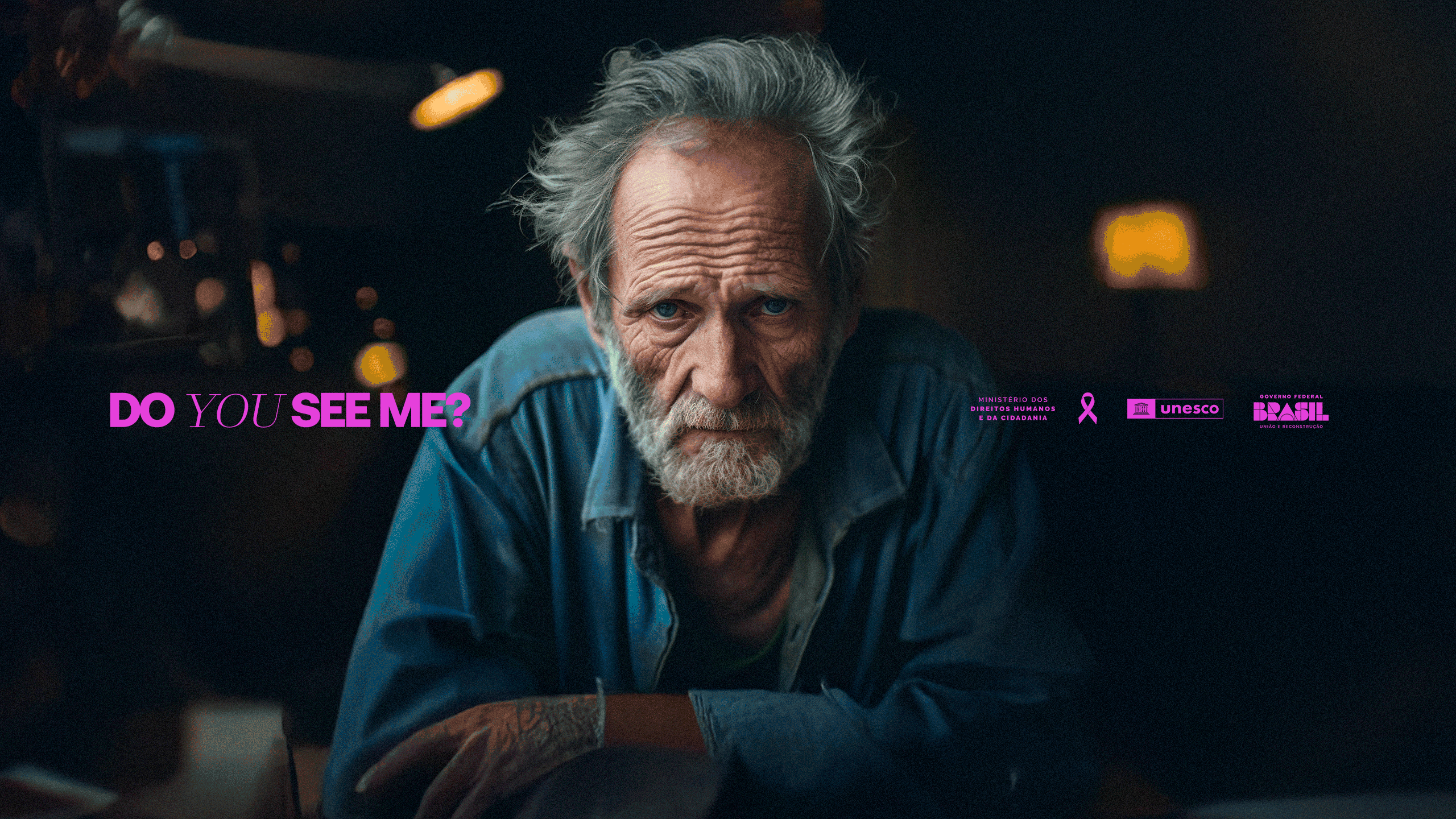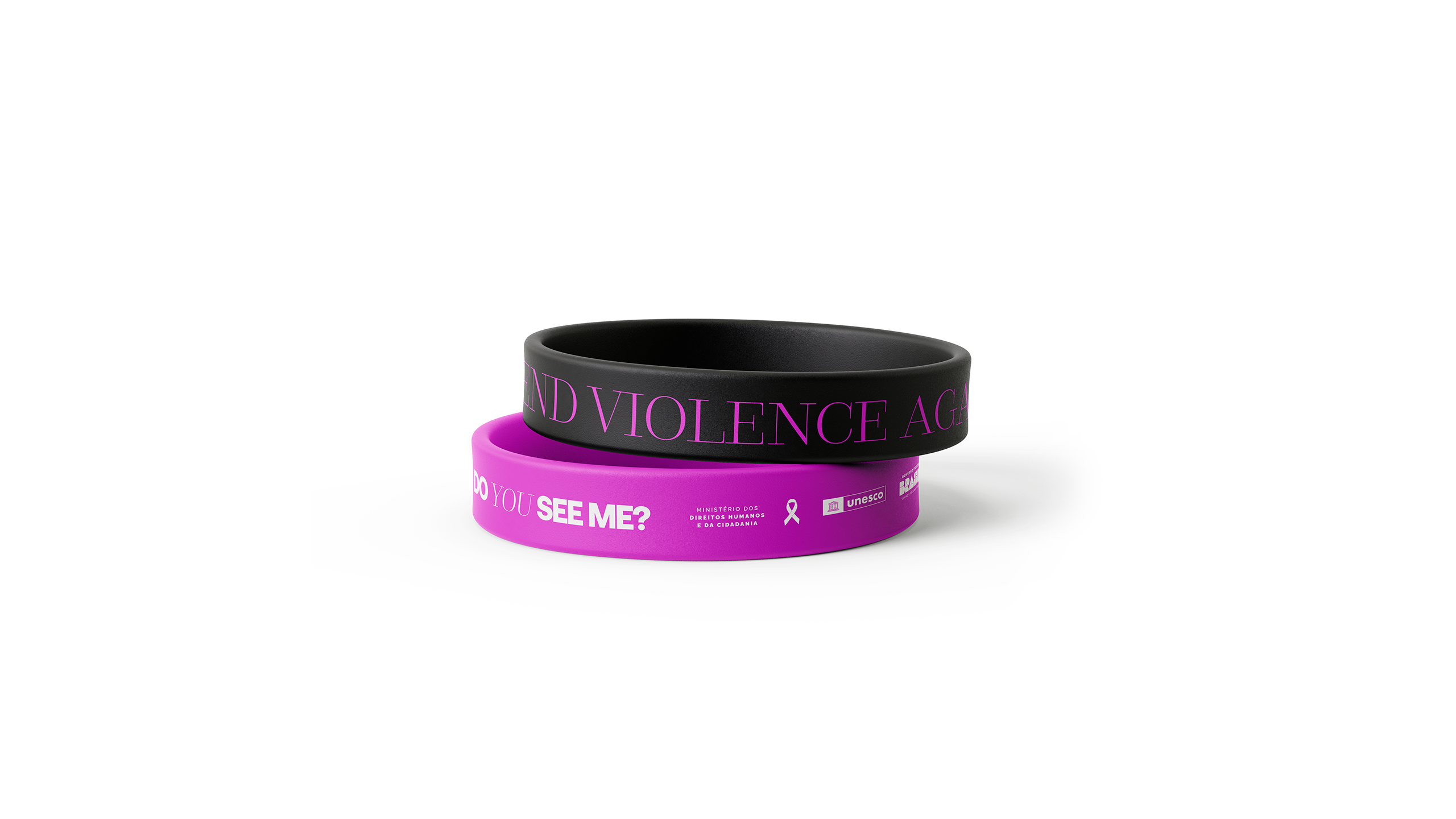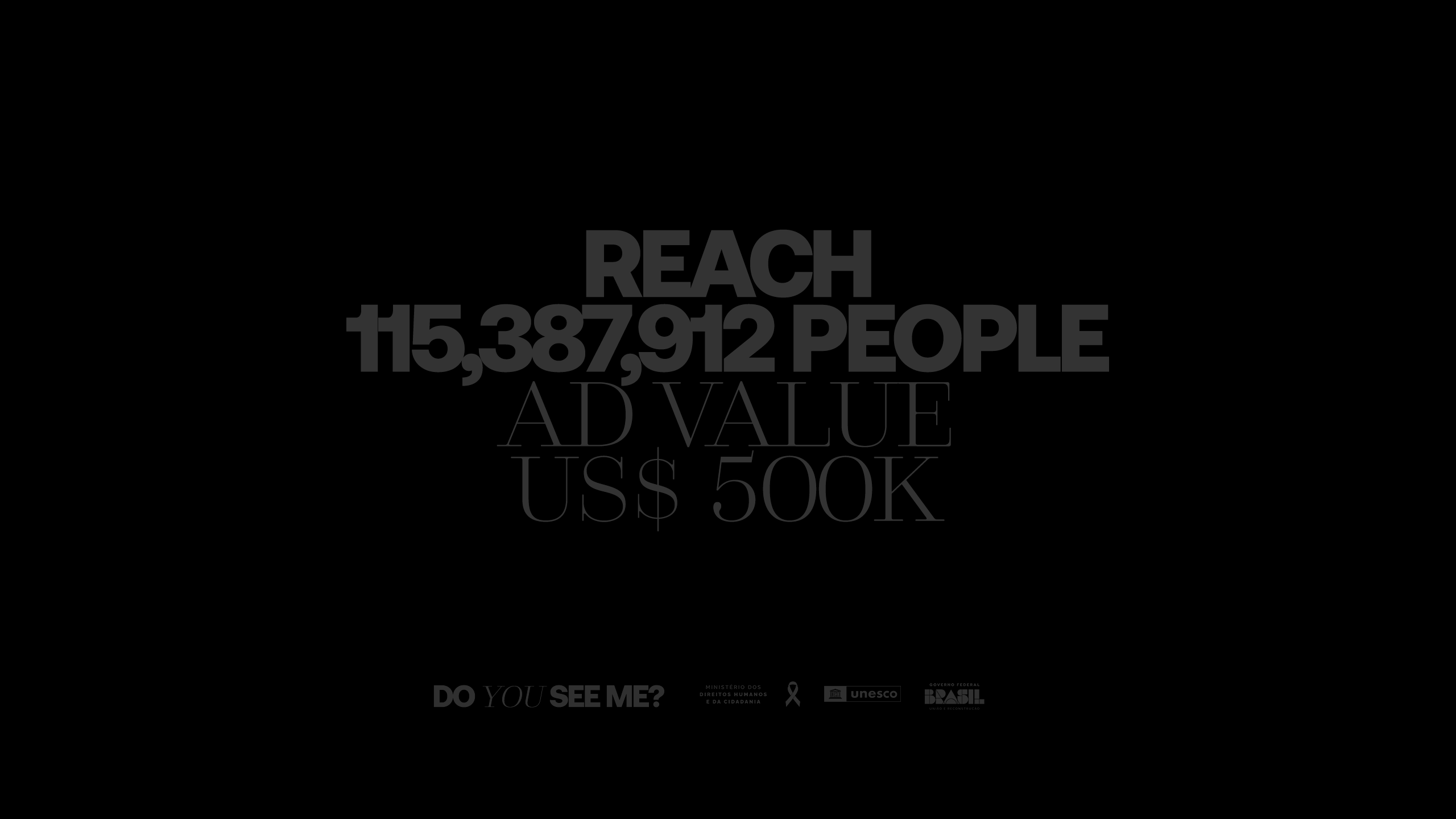UNESCO
2023
2023
Is this how you see me?
Building awareness to drive change.
Reports of violence in Brazil were previously ignored. Our goal was to draw attention and incite government action.
Building awareness to drive change.
Reports of violence in Brazil were previously ignored. Our goal was to draw attention and incite government action.
SP/BR
UNESCO®
UNESCO®
In a country where the elderly often suffer in silence, the “Do You See Me?” campaign emerged as a beacon of hope and advocacy, shining a spotlight on the urgent need to protect the rights of our seniors. With alarming statistics revealing the prevalence of elder abuse in Brazil, it became clear that action was imperative.
Partnering with UNESCO and the Secretary of Elderly Rights, we embarked on a mission to elevate the conversation surrounding elder abuse.
Through compelling messaging and strategic engagement, our objective was twofold: firstly, to raise awareness among the general public, compelling them to confront the harsh realities faced by the elderly; and secondly, to mobilize government officials and policymakers to bring safety and social justice to this group.
Our campaign sought to challenge societal norms and spark a paradigm shift in how we perceive and treat our elderly. By amplifying the voices of those who are often overlooked, we strove to foster compassion, and, above all, action. We aimed to translate empathy into tangible initiatives, advocating for the implementation of support services, and community interventions to safeguard the rights of the elderly.
Partnering with UNESCO and the Secretary of Elderly Rights, we embarked on a mission to elevate the conversation surrounding elder abuse.
Through compelling messaging and strategic engagement, our objective was twofold: firstly, to raise awareness among the general public, compelling them to confront the harsh realities faced by the elderly; and secondly, to mobilize government officials and policymakers to bring safety and social justice to this group.
Our campaign sought to challenge societal norms and spark a paradigm shift in how we perceive and treat our elderly. By amplifying the voices of those who are often overlooked, we strove to foster compassion, and, above all, action. We aimed to translate empathy into tangible initiatives, advocating for the implementation of support services, and community interventions to safeguard the rights of the elderly.
Project: Advertising/Poster/Language
Role: Creative director/Head of Art
With: Vitor Elman, Bruno Ferro, Camila Teshima, Cristian Fonteles
Agency: Cappuccino Digital | IPG DXTRA | Weber Shandwick
Produced by Mol.

Strategy and Execution
Recognizing the urgency to transcend traditional awareness-raising efforts and ignite genuine empathy, the "Do You See Me?" campaign employed a strategic fusion of generative A.I., powerful storytelling, and strategic execution to provoke thought and incite action.
We aimed for the audience to empathize and understand how society often embraces the ideal image of a healthy and happy elderly person, while overlooks those in need. Especially with our target audience—those with the power to make a real difference—the reflection becomes even more profound: how can the government prioritize the well-being of society if it ignores this invisible segment?
Strategically, the campaign unfolded in three distinct phases, each designed to maximize impact and engagement.
Recognizing the urgency to transcend traditional awareness-raising efforts and ignite genuine empathy, the "Do You See Me?" campaign employed a strategic fusion of generative A.I., powerful storytelling, and strategic execution to provoke thought and incite action.
We aimed for the audience to empathize and understand how society often embraces the ideal image of a healthy and happy elderly person, while overlooks those in need. Especially with our target audience—those with the power to make a real difference—the reflection becomes even more profound: how can the government prioritize the well-being of society if it ignores this invisible segment?
Strategically, the campaign unfolded in three distinct phases, each designed to maximize impact and engagement.
Artificial Intelligence
To convey this message, we utilized a timely tool: Artificial Intelligence. This allowed us to confront two contrasting realities—the idealized image we admire and the often-dismissed reality. Do we truly see these individuals? Or do we selectively acknowledge only the aspects we prefer?
To convey this message, we utilized a timely tool: Artificial Intelligence. This allowed us to confront two contrasting realities—the idealized image we admire and the often-dismissed reality. Do we truly see these individuals? Or do we selectively acknowledge only the aspects we prefer?
Campaign Timing
The decision to launch the campaign at a significant event attended by influential figures in the Brazilian government was also a part of the strategy. This high-profile platform not only ensured maximum visibility and exposure but also signaled a clear message to policymakers and legislators.
The impact of the campaign extended far beyond its initial launch, gaining traction and recognition from key stakeholders such as the Ministry of Human Rights and Citizenship and the National Congress of Brazil. "Do You See Me?" succeeded in sparking meaningful conversations, driving policy reform, and elevating the issue of elder abuse from a forgotten concern to a government priority.
The decision to launch the campaign at a significant event attended by influential figures in the Brazilian government was also a part of the strategy. This high-profile platform not only ensured maximum visibility and exposure but also signaled a clear message to policymakers and legislators.
The impact of the campaign extended far beyond its initial launch, gaining traction and recognition from key stakeholders such as the Ministry of Human Rights and Citizenship and the National Congress of Brazil. "Do You See Me?" succeeded in sparking meaningful conversations, driving policy reform, and elevating the issue of elder abuse from a forgotten concern to a government priority.








It also has yielded substantial improvements.
These include the formulation of the National Plan to Combat Violence against the Elderly and the establishment of the Database and Bulletin of the National Ombudsman for the Elderly, dedicated to monitoring the situation of the elderly throughout Brazil. Furthermore, the campaign has fortified a range of initiatives:
These include the formulation of the National Plan to Combat Violence against the Elderly and the establishment of the Database and Bulletin of the National Ombudsman for the Elderly, dedicated to monitoring the situation of the elderly throughout Brazil. Furthermore, the campaign has fortified a range of initiatives:
- Training for Complaints Managers
- Distribution of Reports, Manuals, and Other Materials on Elderly Rights
- First National Conference on the Human Rights of the Elderly, addressing issues of their dignity and rights
- Judicial Policy for the Elderly and Its Intersectionality: A regulatory act to improve the judicial treatment of the elderly
- Viva Mais Cidadania Program: Empowering the citizenship of vulnerable elderly individuals, covering education, health, and access to benefits
- Political Training and Digital Literacy: Programs to educate the elderly on human rights and citizenship, including digital skills
- National Network of State Managers in Elderly Human Rights: Coordination among states and the Federal District for the protection of the rights of the elderly
